ARTICLE AD BOX
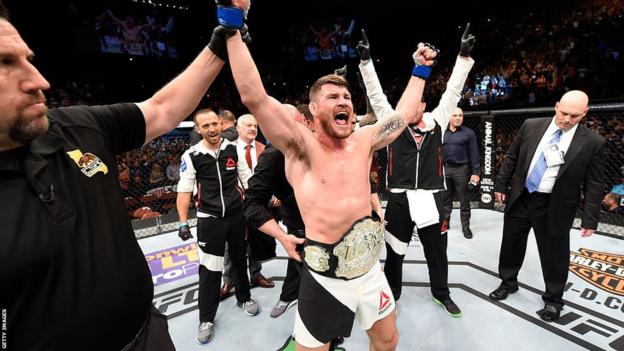 Michael Bisping was 36 years old when he became the first, and to date only, British UFC champion
Michael Bisping was 36 years old when he became the first, and to date only, British UFC championAs Michael Bisping walks into the room for this interview, he spills a cup of coffee on the floor.
For most, it would be an innocuous incident. For Bisping, there is a life-changing, career-defining reason behind the spillage - he is blind in one eye.
The remarkable story of how the 43-year-old lost the vision in his right eye yet still went on to become the first British UFC champion in history is told in a new documentary.
Here, Bisping talks to BBC Sport about the emotional turmoil he experienced as a fighter, the steep barriers he overcame to reach the top, and how it felt watching a film about his career.
'The eye injury took my identity away'
When Bisping agreed to fight Vitor Belfort in 2013, he knew beating the Brazilian could lead to his first UFC world title fight.
What he didn't know was the bout would be the last time he stepped inside the octagon with vision in both eyes.
In the second round, Belfort landed a fight-ending head kick which led to a detached retina on Bisping's right side.
He initially dealt with the injury privately - fearing medical professionals would prevent him fighting - and three months later beat Alan Belcher by a technical unanimous decision.
By then, though, his symptoms had worsened to the extent he couldn't put off seeing a doctor any longer.
Six surgeries later, his vision remained irreparable and his fight career appeared to be over.
"The mental side was by far the hardest part," says Bisping.
"I'd just moved out to America. Things were going well living this new life in California, but we weren't financially secure and it all got taken away.
"I went through depression and feeling sorry for myself and drinking too much because I couldn't do anything. My entire identity had been taken away."
Despite the loss of vision, decline in his mental health and insistence by doctors his career was over, Bisping never considered retiring.
"Physically I felt great," he says. "I could still do it, but I couldn't get cleared to fight. Someone else is saying: 'No we're not allowing you to fight because of your eye.'
"I was forced for a year to not do anything which could get my heart rate up, and to allow the eye to heal, and that was in itself very challenging."
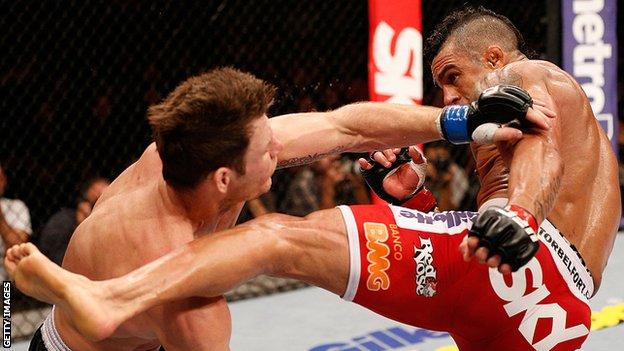 Bisping's defeat by Vitor Belfort in 2013 had life-changing consequences
Bisping's defeat by Vitor Belfort in 2013 had life-changing consequences'I'd be punching fresh air'
Contrary to the belief of the doctors, Bisping did end up fighting again. And again. And again.
Indeed three years after going blind in his right eye, Bisping won the UFC middleweight title by knocking out Luke Rockhold.
But how did Bisping get cleared to fight, and what was it like competing with one eye?
In Bisping: The Michael Bisping Story, he tells how he "fluked and conned" his way through a number of tests by medical professionals, before getting the all-clear.
Indeed only Bisping and his close team members knew the full extent of his problem.
Inside the octagon, the main adjustments he had to make were to do with depth perception, which he still struggles with today - hence the spilt coffee.
"I'd go to grab things, miss on a couple of occasions, then get it the third time," says Bisping.
"It was the same with punching - I'd be hitting fresh air, but then you connect and your brain kind of measures the distance.
"It was tough, challenging and definitely an adjustment period but I got there in the end."
'Downplaying things was my defence mechanism'
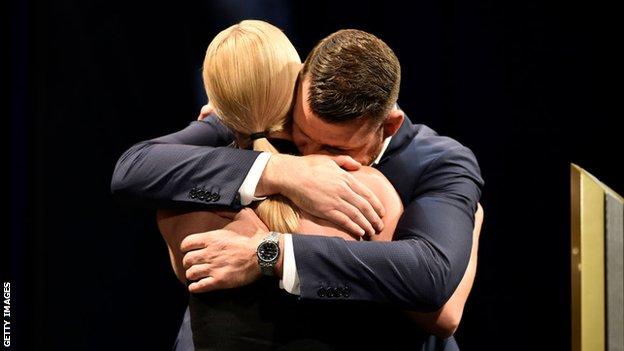 Bisping was joined by his wife Rebecca on stage when he was inducted into the UFC Hall of Fame in 2019
Bisping was joined by his wife Rebecca on stage when he was inducted into the UFC Hall of Fame in 2019Throughout the documentary, Bisping shows an emotional side in contrast to the brash, outspoken character he portrayed through his fight career.
Whether it's speaking about his eye injury, the problems he suffered growing up in Clitheroe, or the difficulties in coming to terms with defeat, Bisping isn't afraid to pour out his feelings.
One such poignant moment comes when he talks about meeting his wife, Rebecca.
"She never helped me, she just loved me," he says. "She loved me for who I was and because of her and what we had, I wanted to do better in life.
"I never had any ambition, never wanted to be someone. I didn't care. Who cared if I didn't go to school? Who cared if I got arrested?
"My mum and dad weren't around too much so when Rebecca came along I wanted more out of life and I wanted to be a success."
Bisping says discussing his emotions in the way he did during the documentary is something he struggled with during his career.
"I had this defence mechanism, especially after a loss, of trying to play things down," he says. "But inside you're crushed.
"That's one thing that would have helped me - trying to get hold of my emotions. If I could do that, my life would be so much easier because I react out of emotion all the time, and controlling those emotions and discussing those emotions and being honest would certainly have helped."
'Everyone said the nicest things, but I'm just an idiot from Clitheroe'
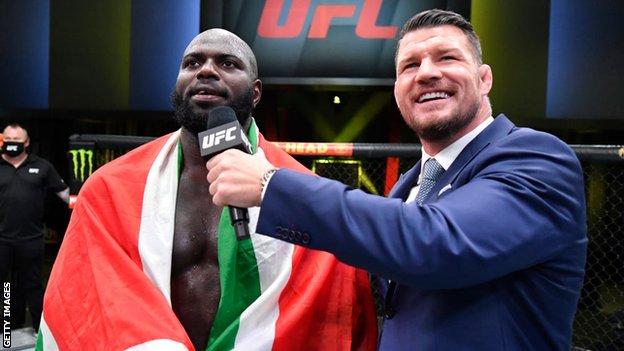 Bisping has built a career in the media following his retirement from fighting
Bisping has built a career in the media following his retirement from fightingFollowing defeat by Kelvin Gastelum, and a scare involving his left eye, Bisping retired in 2017.
He's since built a career in the media - commentating and providing analysis for the UFC, and taking part in a number of podcasts.
Looking back, he struggles to identify with the person he used to be.
"The fighter side of me ... I wouldn't say it's dead, but it's definitely suppressed," he says.
"But I sit cageside now, commentating on fights, and see what these guys do to each other, and I think: 'They're out of their mind - and I used to this. It's crazy.'"
Among the other big names to appear in the documentary are MMA stars Georges-St Pierre and Rashad Evans - and both credit Bisping with being an inspiration.
"They're legends themselves - they don't get any bigger than Georges - and for them to say what they said, it's incredibly humbling," he says.
"Rashad Evans is actually crying because he was so proud of what I managed to do so, again, it's hard to find the right words.
"Everyone on the film said the nicest things, and I'm just an idiot from Clitheroe, do you know what I mean?
"It's amazing, it really is. Mind-blowing."

- Who were the greatest number 10s? Ranking the best players who wore the number
- Becoming Batman: Robert Pattinson reveals all about taking on the iconic role


 2 years ago
28
2 years ago
28
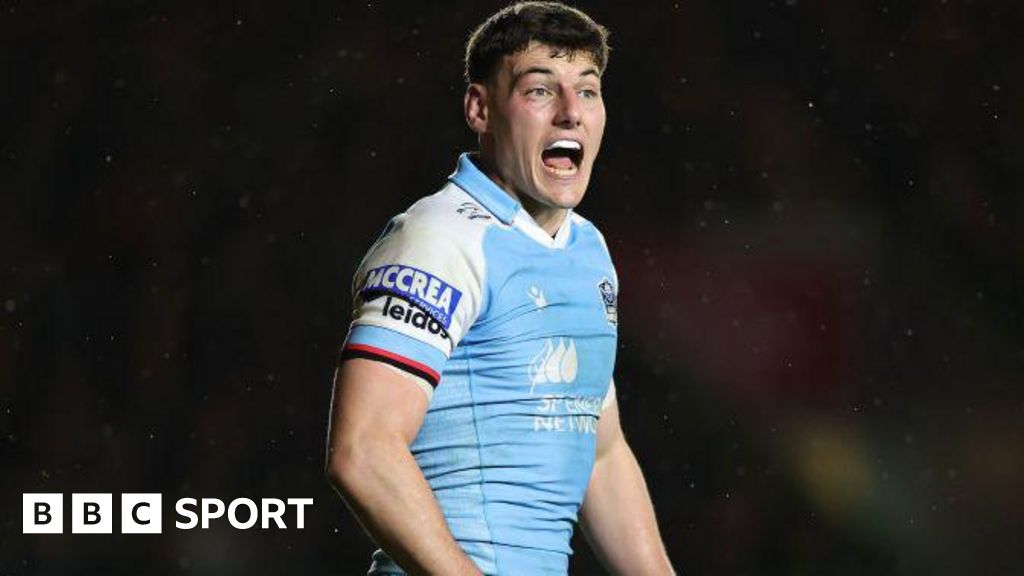
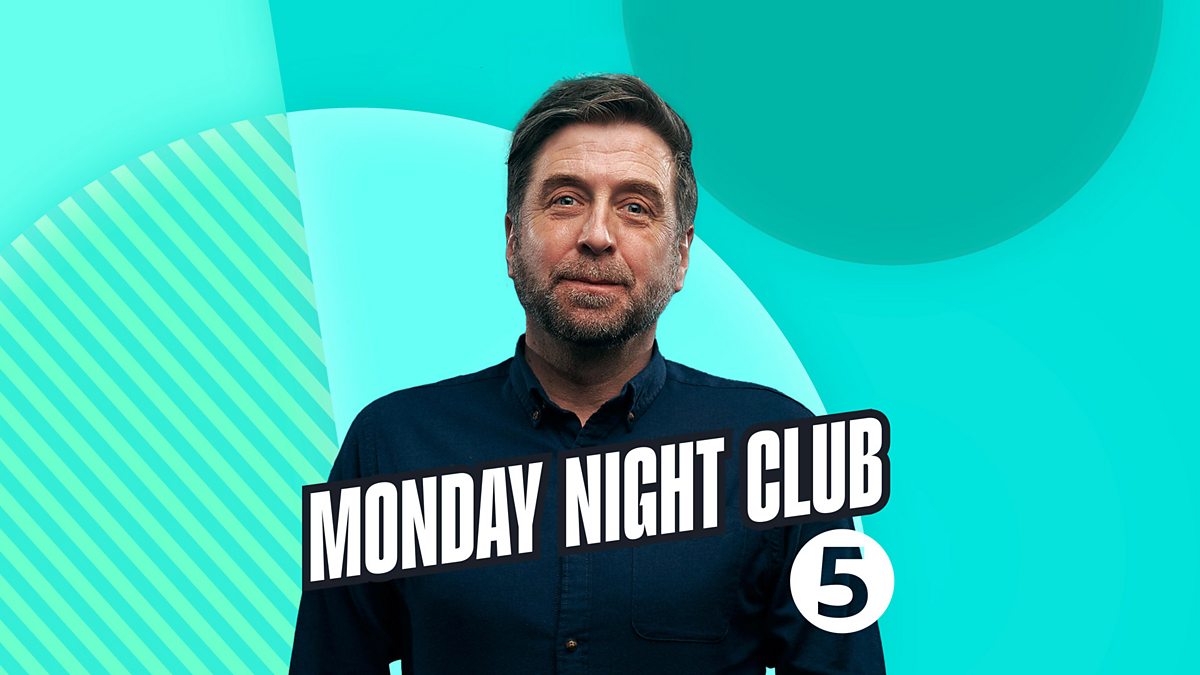
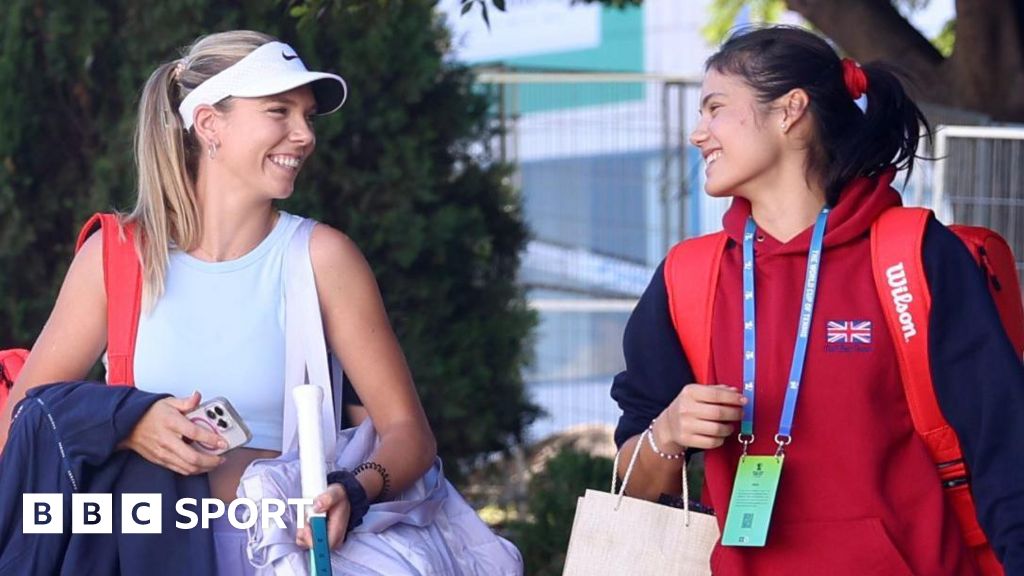





 English (US)
English (US)